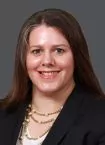On December 20, 2021, the OECD released the Model Rules for Pillar Two or the "Global Anti-Base Erosion" (GloBE) Rules.1 The GloBE Rules are the first step towards implementing the groundbreaking international agreement reached by more than 135 countries announced by the OECD/G20 Inclusive Framework in October 2021.2 Pillar Two provides for a minimum 15% tax on corporate profits for multinational enterprises (MNEs) with more than EUR 750 million in consolidated revenues.
The GloBE Rules are composed of an (i) income inclusion rule (IIR) and (ii) undertaxed payment rule (UTPR). To the extent a MNE is subject to the GloBE Rules, the IIR would seek to impose a top-up tax on a parent entity on the income of a constituent entity that is taxed at an effective rate below 15%. The UTPR would deny deductions or require an equivalent adjustment to the extent the income of a constituent entity is taxed under the 15% tax rate threshold.3 The GloBE Rules provide a 5-step process to determine the top-up tax liability for a MNE, but the rules themselves are complex in implementation and execution.4 The OECD's Model Rules were drafted to provide a template that each member jurisdiction can translate into domestic law and take effect in 2023.
To help MNEs understand the GloBE Rules, the OECD also released an Overview Fact Sheet,5 a "Nutshell" explanation of the rules,6 and Frequently Asked Questions.7 Significant work, however, remains to be completed by the OECD and each member jurisdiction as we march towards a desired global implementation in 2023.
Among the open questions is how the U.S. Global Intangible Low-Taxed Income (GILTI) regime will co-exist with the GloBE Rules. While the US GILTI regime incorporates many aspects of the GloBE Rules, certain changes would be necessary to make GILTI fully compatible with GloBE. These changes are included in the proposed Build Back Better Act (BBBA) legislation currently being debated in Congress.8
The OECD expects to issue a commentary on the model rules in early 2022 that should help to resolve some of their remaining unexplained nuances and to hold a public consultation in February 2022. We'll take an in-depth look at the model rules and the road to 2023 in an upcoming client alert in early January 2022.
Footnotes
1. See OECD (2021), Tax Challenges Arising from the Digitalisation of the Economy - Global Anti-Base Erosion Model Rules (Pillar Two): Inclusive Framework on BEPS, OECD, Paris.
2. See G20 Finance Ministers Endorse Landmark OECD/G20 Inclusive Framework Agreement: New Rules Likely to Put Added Pressure on Existing Transfer Pricing Rules (Oct. 15, 2021).
3. See Milestone Agreement Reached by 136 Countries on Significant Changes to the Global Tax Landscape (Oct. 13, 2021).
4. See Overview of the Key Operating Provisions of the GloBE Rules (Fact Sheets).
5. Id.
6. See The Pillar Two Rules in a Nutshell
7. See Global Anti-Base Erosion Model Rules (Pillar Two): Frequently Asked Questions
8. See Overview of US Tax Provisions of Build Back Legislation Approved by House Ways & Means Committee (Sep. 21, 2021); US House of Representatives Passes President Biden's Tax Overhaul Legislation (Nov. 29, 2021).
Visit us at mayerbrown.com
Mayer Brown is a global legal services provider comprising legal practices that are separate entities (the "Mayer Brown Practices"). The Mayer Brown Practices are: Mayer Brown LLP and Mayer Brown Europe - Brussels LLP, both limited liability partnerships established in Illinois USA; Mayer Brown International LLP, a limited liability partnership incorporated in England and Wales (authorized and regulated by the Solicitors Regulation Authority and registered in England and Wales number OC 303359); Mayer Brown, a SELAS established in France; Mayer Brown JSM, a Hong Kong partnership and its associated entities in Asia; and Tauil & Chequer Advogados, a Brazilian law partnership with which Mayer Brown is associated. "Mayer Brown" and the Mayer Brown logo are the trademarks of the Mayer Brown Practices in their respective jurisdictions.
© Copyright 2020. The Mayer Brown Practices. All rights reserved.
This Mayer Brown article provides information and comments on legal issues and developments of interest. The foregoing is not a comprehensive treatment of the subject matter covered and is not intended to provide legal advice. Readers should seek specific legal advice before taking any action with respect to the matters discussed herein.


